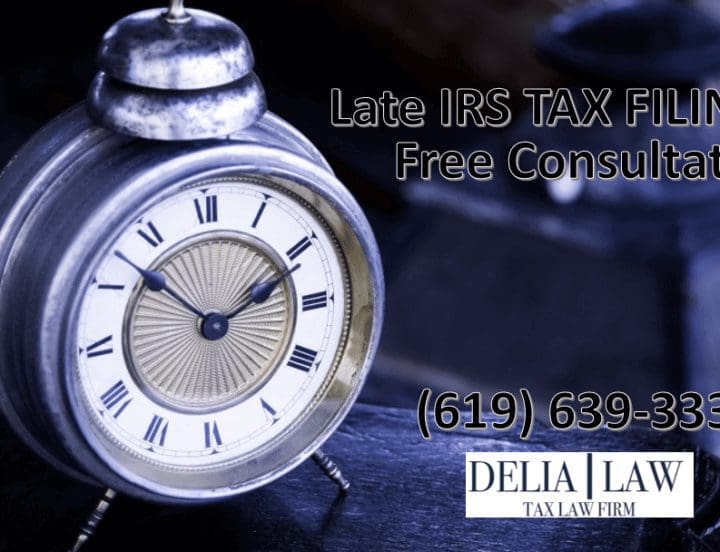IRS Late Filing – What Should I Do If I Am Late Filing Taxes?
 Don’t beat yourself up if you forget or put off filing your taxes. It is surprisingly easy to do, but be careful not to make a habit of it. One unfiled tax return is nothing to worry too much about, but two, three and four can land you in some serious trouble with the IRS. Also, you can end up owing a great deal if you fail to file even one return for many years.
Don’t beat yourself up if you forget or put off filing your taxes. It is surprisingly easy to do, but be careful not to make a habit of it. One unfiled tax return is nothing to worry too much about, but two, three and four can land you in some serious trouble with the IRS. Also, you can end up owing a great deal if you fail to file even one return for many years.
The trick is to get back on track. Many taxpayers start to avoid and evade their IRS tax problems which only makes things worse. It is half the battle just deciding that you want to become tax return compliant. So, dig yourself out and start the process:
IRS late filing first step – Compile your tax information
It is important to be prepared before starting on your unfiled tax returns. Be sure to start compiling the following:
-last filed tax return
-w-2’s evidencing income
-1099’s evidencing income
-other evidence of income received such as alimony, social security, gambling winnings.
-if you owned a business, bank statements, credit card statements, receipts, or other evidence of income and expenses
-foreign bank account information
-medical expenses
For a thorough list, please see https://digitalasset.intuit.com/DOCUMENT/A44724mxI/TurboTax_TaxPrepChecklist.pdf
If you do not have your own records, you can request copies of your tax documents (i.e., wage and income and account transcripts) from the IRS. You can also contact your employer, other company or person that you may have worked for to get your tax records.
IRS late filing step 2 – Prepare and file your returns
Compiling information for returns from the past can be certainly troubling so set aside about three hours per return. You can always do it yourself or find a tax professional that comes highly recommended. If you run into any problems with these filings or other IRS tax issues, it is best to hire an experienced tax attorney to assist in dealing with the IRS.
As to the administrative details, delinquent tax returns generally must be paper-filed and mailed to the IRS. Make copies! Be sure that you mail only one tax return per envelope and mail your returns certified to make sure you have proof of receipt from the IRS. If you do not want to mail them or if it is urgent to file, you can file your returns at your local IRS office.
Also, do not wait too long to file because if you know you will get money back, you generally have three years from the date your tax return is due to claim your refund.
IRS late filing step 3- Plan for tax debt resolution and call a tax attorney
If you know you will owe money as reflected from your recently filed back tax returns, and can’t pay it off, be sure to look into hiring a tax relief attorney. They can assist you in figuring out which IRS tax resolution is best for you. These options include, installment agreements, partial payment agreements, currently non-collectible status due to financial hardship and of course, an offer in compromise or settlement for less than the IRS debt owed.
An offer in compromise is the most complex of all the options, but it the most sought after as it resolves the debt entirely for sometimes much less than what it owed. It is essential for a tax attorney to assist you with this type of resolution due to the complexity and strategy involved. You must establish that you cannot pay your balance through an installment agreement or by any other means and show that you cannot pay the balance in full. It can take up to a year to push through and the IRS carefully scrutinizes each case. If your tax attorney finds that you qualify, this is the best way to go.
Taxpayers needing tax help with IRS Late Filing, unfiled taxes or back taxes should seek the advice of a tax attorney. The San Diego Tax Attorneys at Delia Law have many years of tax resolution experience and will competently represent you before the IRS. Please call for a no-cost tax attorney consultation for tax resolution at (619) 639-3336. We look forward to helping you.
This blog post is not intended as legal advice and should be considered general information only.
Keywords: Late tax returns, unfiled tax returns, late filing taxes, back taxes, back tax returns, tax relief attorney









